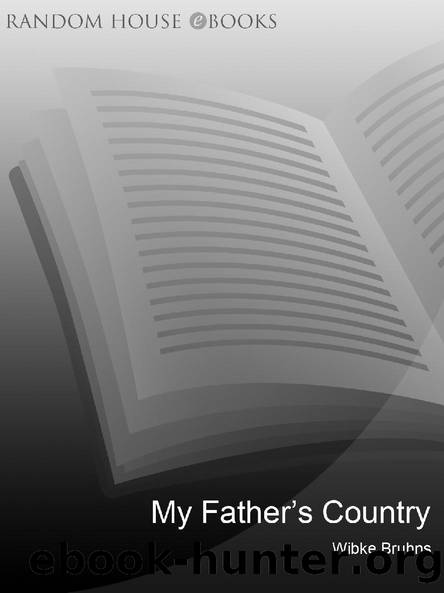My Father's Country by Wibke Bruhns

Author:Wibke Bruhns [Bruhns, Wibke]
Language: eng
Format: epub
Publisher: Random House
Published: 2009-11-10T00:00:00+00:00
EIGHT
Grandfather Kurt
THEREâS ANOTHER FAMILY reunion in 1925, this time in Berlin-Grunewald at the home of the banker Walter Klamroth. Heâs a cousin of Kurtâs, a lawyer and the associationâs treasurer, and I remember that the duelling scars on his face fascinated me just as much as the claim that people used to have such wounds inflicted voluntarily. Uncle Walter was in the âHanseaâ corps. He wore a pince-nez, and as a child I hoped in vain that it would fall off his nose. Itâs the first time that HG and his wife attend a family reunion together: in 1923 pregnant Else bravely went on her own, HG was in Bochum; there was no family reunion in 1924, but Else had been pregnant again, as she is this time â HG: âI promised her the prettiest dress for the next family reunion.â Forty-six family members came to this one, and the clan set off in three motor boats âand with a lot of wineâ first to the Pfaueninsel in the Havel river, then to the parks of Sakrow and Sanssouci.
Kurt, the archivist, presents them with their âsociological family treeâ, and delivers a lecture on âthe social rise of the Klamroth dynasty through the generationsâ â from farmer to estate-owner; from worker to factory-owner; village schoolteacher â vicar â private scholar; once a clerk, now a senior member of the government. He tells them how the âinflux of fresh bloodâ brought in by the wives contributed to the familyâs impetus, since the men at the top no longer looked for wives in the neighbouring villages. He speaks of blood from Hanover and blood from Hessen and Franken, all Protestant blood, incidentally. Elseâs blood is singled out for approval â not just Mecklenburg, but Denmark, too! Then they sit down in Pschorrâs Bierkeller, forty-six happy Klamroths, ennobled by blood and soil, ten years later they will sing: âFrom my fatherâs side comes my Klamroth blood, and a good drop of blood it is too (schrumm schrumm). So letâs raise a toast to our fine pedigree, for noble it is, through and through!!â
By that time theyâve lost their innocence. They still find it funny â schrumm schrumm â however, by then their blood is part of a trend. But in 1925? The Klamroths werenât folkish, they were strangers to zeal. They werenât anti-Semitic, at least no more than was usual in those days and what was befitting to social respectability. Jews werenât their issue. Not yet. They were nationalistic, though. Not so much as to rule out a desire for understanding between nations; membership of their social class certainly allowed the Klamroths to cross borders. They were good people, decent, liberal within limits and proud not of their âbloodâ but of their ancestorsâ achievement, which imposed a duty upon them. They nurtured their common ground as a family, and that was then called âbloodâ.
Else fits in very well with all this. She is a family animal herself, and the many Danes and Mecklenburgers she
Download
This site does not store any files on its server. We only index and link to content provided by other sites. Please contact the content providers to delete copyright contents if any and email us, we'll remove relevant links or contents immediately.
I Have Something to Say by John Bowe(3282)
What Happened to You? by Oprah Winfrey(1471)
Doesn't Hurt to Ask by Trey Gowdy(1398)
Einstein: His Life and Universe by Walter Isaacson(1314)
Solutions and Other Problems by Allie Brosh(1028)
Disloyal: A Memoir by Michael Cohen(1020)
American Dreams by Unknown(859)
Don't Call it a Cult by Sarah Berman(833)
Infinite Circle by Bernie Glassman(828)
Group by Christie Tate(809)
Home for the Soul by Sara Bird(806)
Talk of the Ton by unknow(733)
The Silent Cry by Cathy Glass(680)
Total F*cking Godhead by Corbin Reiff(662)
Severed by John Gilmore(651)
Searching for Family and Traditions at the French Table by Carole Bumpus(647)
The Battle of Mogadishu by Matt Eversmann & Dan Schilling(610)
Things I Wish I Knew Before My Mom Died by Ty Alexander(599)
Before & Laughter by Jimmy Carr(595)
